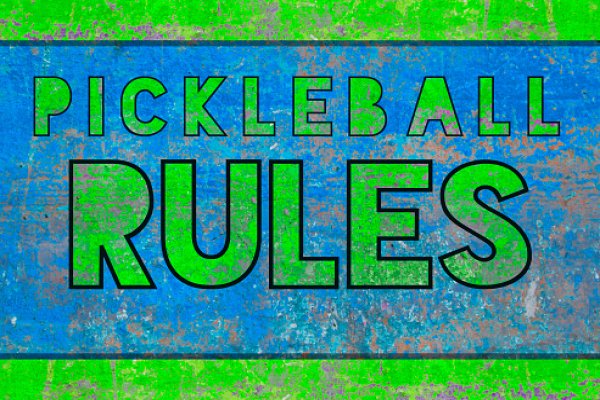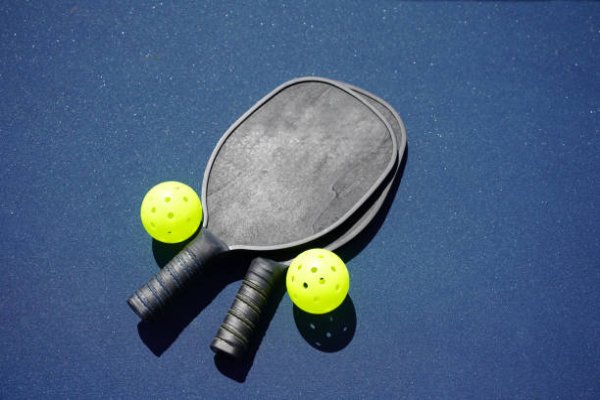I’ve been playing pickleball for years and let me tell you, it’s not just a fun sport. It’s also packed with health benefits that can transform your life. From boosting heart health to improving mental wellness, the perks of playing pickleball are endless.
If you’re looking for a way to stay active and healthy, pickleball might be the answer. It’s a low-impact sport that can be enjoyed by people of all ages and fitness levels. Plus, it’s a great way to socialize and meet new people. So, let’s dive in and explore the amazing health benefits of pickleball.
Increased Cardiovascular Fitness
Pickleball’s quick-paced nature truly shines in boosting cardiovascular health. It’s a game where you’re always on the move – chasing the ball, aiming your shots, darting around the court. These fast-paced actions get your heart pumping, improving the heart’s overall endurance over time. When done regularly, five days a week for half an hour, you’re looking at a significant improvement to your cardiovascular health.
But what makes pickleball so unique in increasing cardiovascular fitness? Why not just stick to jogging or walking?
One of the great things about pickleball is that it’s a full-body workout, not just a good cardiovascular one. The game regularly targets your arms, legs, core, and even boosts your reflexes. Also, thanks to the game’s intermittent bursts of high intensity, it might actually be more effective at boosting heart health compared to steady-state exercises like jogging or walking.
The best part is, aside from the health benefits it offers, the game’s fast-paced and fun nature makes the time fly by. You’re having so much fun, you’ll forget you’re exercising at all!
Playing pickleball also results in notable improvements in lung capacity and respiratory functions. The increased demand for oxygen during gameplay requires deeper, more frequent breaths, improving lung function over time.
That’s not all, pickleball can help lower your resting heart rate and blood pressure over time. A lower resting heart rate indicates a healthier cardiovascular system and a lower risk of heart disease.
Here’s a brief overview of the heart health benefits that come along with playing pickleball:
| Health Benefit | Brief Overview |
|---|---|
| Improved Heart Endurance | Regular gameplay improves heart’s overall endurance, supporting general cardiovascular health. |
| Increased Lung Capacity | The high-demand gameplay leads to deeper more frequent breathing, thus improving lung functions. |
| Lowered Resting Heart Rate | Regular play can help reduce an individual’s resting heart rate – an indication of a healthier, stronger heart. |
| Reduced Blood Pressure | Ongoing physical activity helps lower blood pressure, reducing the risk of many heart diseases. |
Improved Muscular Strength and Endurance
Pickleball isn’t just about fun and games, it’s also a serious muscle-building workout. This dynamic sport involves bursts of high-intensity activity followed by periods of rest. This pattern mimics the principles of high-intensity interval training (HIIT) that’s proven effective for muscle building.
Pickleball works out your entire body, not just a couple of muscle groups. You’ll engage your core, lower body, and upper body as you dart around the court, swing your paddle, and work against your opponent. These varied movements enhance muscular strength and endurance.
Not to mention, all that swinging and serving also improves muscle tonality. Your shoulders, arms, and core will benefit from this as they tally many repetitions during a game.
Here’s a quick look at the muscle groups that pickleball targets:
Upper Body Muscles Engaged in Pickleball Play:
- Shoulders
- Arms (Biceps, Triceps)
- Core (Obliques, Transverse Abdominis)
- Chest
Lower Body Muscles Engaged in Pickleball Play:
- Legs (Calves, Quadriceps, Hamstrings)
- Hips
The mix of movements involved in pickleball means you won’t just be working on muscular strength, but on muscular endurance as well. This essentially prompts your muscles to resist fatigue over extended periods of time, boosting long-term fitness.
Let’s look at some numbers and data representing the impact of pickleball on muscular strength and endurance:
| Activity | Metabolic Equivalent (MET) | Calories Burned Per Hour (for a 150lb person) |
|---|---|---|
| Pickleball | 6.0 METs | 600 calories |
| Walking (3mph) | 3.3 METs | 240 calories |
| Running (6mph) | 9.8 METs | 800 calories |
As we can see, pickleball sits right between walking and running in terms of caloric burn, making it a pretty impressive workout. This speaks volumes about its capacity to build muscular strength and endurance.
To sum it up, engaging in a game of pickleball is not just a great way to break a sweat. It’s an effective and exciting way to improve your muscular strength and endurance.
Weight Loss and Management
Moving forward, let’s delve into another significant advantage of playing pickleball: weight loss and management. After understanding how pickleball benefits cardiovascular health and provides a comprehensive workout for various muscle groups, it’s logical to see how it can also aid in shedding those extra pounds and maintaining a healthy weight.
Pickleball, as a fast-paced and high-intensity sport, burns calories at a surprising rate. Think about the constant side-to-side movements, lunges, and quick sprints during the game. This kind of dynamic movement not only ignites your fat-burning engine but also keeps it running for hours after. It’s somewhat akin to how high-intensity interval training (HIIT) works, yielding the benefits of both workout intensity and duration.
To put things into perspective, take a look at the table below showing average calories burnt per hour while playing pickleball compared to other popular physical activities.
| Activity | Calories Burnt (per hour for a person weighing 155 lbs) |
|---|---|
| Pickleball | 600 |
| Walking (3.5 mph) | 267 |
| Jogging (5 mph) | 563 |
Enjoying a game often overshadows the physical exertion in pickleball. It’s a fun-filled activity that makes it easy to forget how much energy is going into the game. That’s the charm of sports; they can feel less like a chore and promote exercise regularity, critical for long-term weight loss and management.
Moreover, pickleball also impacts your basal metabolic rate (BMR): the number of calories your body burns at rest. By developing muscle mass through intensive workouts, your BMR increases, meaning you burn more calories even when you’re not playing.
Beyond weight loss, consistent participation in pickleball can also aid in weight management. It fosters discipline and regularity in physical activity, making it a sustainable practice. So, whether you’re looking to lose weight or maintain it, integrating pickleball into your fitness regimen could be a fruitful way forward.
Joint Health and Flexibility
Pickleball’s impact doesn’t stop at cardiovascular health or muscular endurance. This all-encompassing sport also aids in improving joint health and flexibility. Let’s delve into how it does this.
Playing pickleball regularly engages our major body joints, moving them frequently and reducing the risk of joint stiffness. It’s no secret that regular movement helps in keeping the joints flexible and healthy. This may be particularly important for individuals dealing with arthritis, as the gentle movements in pickleball can help ease the symptoms.
Not only does this regular movement aid in maintaining joint health but it also promotes better flexibility. Flexibility is key to performing daily activities with ease and sans injury.
Add to this, is the role of pickleball in improving bone density. As a weight-bearing activity, pickleball stimulates bone growth, which is crucial for supporting our joints and preventing conditions such as osteoporosis.
Compare this with the little to no joint movement during prolonged sitting or sedentary behavior, and it becomes clear how beneficial pickleball can be. At its core, pickleball is a fun, social, yet physically engaging sport that encourages movement, improves flexibility and bolsters joint health. All while ensuring a safer, low-impact nature of the sport lessens undue stress on joints.
We can look at some data to better understand the impact of pickleball on joint health.
| Impact | Description |
|---|---|
| Joint mobility | Regular play keeps joints moving and prevents stiffness |
| Flexibility | Improves range of motion for daily activities |
| Bone density | Promotes bone growth and health through weight-bearing activity |
| Reduced injury risk | Nature of the sport ensures low-impact on joints |
Looking at the table above, it is evident that pickleball is an excellent comprehensive workout that caters to all our major body joints and improves flexibility. Alongside its benefits on cardiovascular health, muscular strength and endurance, and weight management, it’s clear that pickleball holds a plethora of health benefits that cannot be overlooked. Now let’s move on to looking at pickleball’s other benefits.
Mental Wellness and Stress Reduction
Switching gears now, let’s dive deeper into the mental health benefits of pickleball. Regular exercise, as we’ve uncovered, is great for the body, but did we mention that it’s also excellent for the mind?
The first benefit under our microscope is stress reduction. In an age where stress levels are skyrocketing, coordinated activities like pickleball can act as a saving grace. Amid heated play, there’s no room for bothering about daily worries. The game demands your attention, taking your mind off your list of to-dos and financial or personal challenges.
Playing pickleball promotes the release of endorphins, those much-desired ‘happy hormones’. They’re responsible for uplifting our moods, sparking that beautiful post-exercise glow known as the ‘runner’s high’. You don’t need extravagant exercise sessions to receive a wave of endorphins; a match of pickleball will do the trick!
On to the next point: social connections. In a digital world where face-to-face interaction is becoming a rarity, playing pickleball stands as a breath of fresh air. This sport introduces opportunities to link with a vibrant, supportive community. Remember the adage, ‘we’re social creatures’? Pickleball, with its charm and allure, rings true to that.
So yes, it’s safe to say that staying active with pickleball can serve as a sort of preventive medicine for your mental health. The cocktail of stress reduction, endorphin release, and social connection can provide a significant mental boost. The effects of all these are nothing to be dismissed lightly.
Next on the agenda for our discussion is the impact of pickleball play on mindfulness and concentration. Stick around for that.
Conclusion
So there you have it. Pickleball isn’t just a fun pastime, it’s a powerhouse of health benefits. It’s like a secret weapon for your body, strengthening muscles and boosting cardiovascular health. It’s a weight management partner, helping you shed those extra pounds. But it doesn’t stop there. Pickleball’s impact on joint health, flexibility, and bone density is nothing short of impressive.
Yet, pickleball’s magic extends beyond physical health. It’s a mental health ally, easing stress and releasing those feel-good endorphins. It’s a social catalyst, forging connections and friendships on the court. And it’s a mindfulness coach, honing your concentration skills with each serve and volley.
In the world of sports, pickleball is truly a hidden gem. It’s more than a game, it’s a lifestyle choice that promotes health and well-being. So, next time you’re looking for a fun, engaging way to stay fit and healthy, remember – pickleball’s got your back.














0 Comments